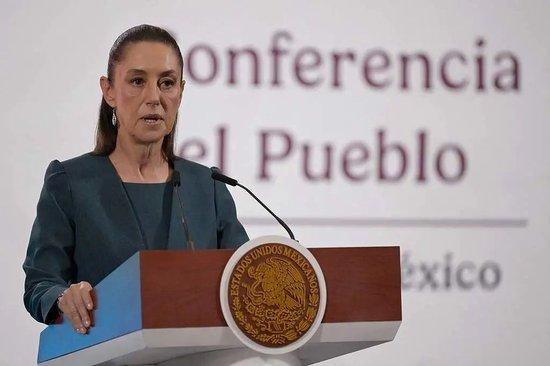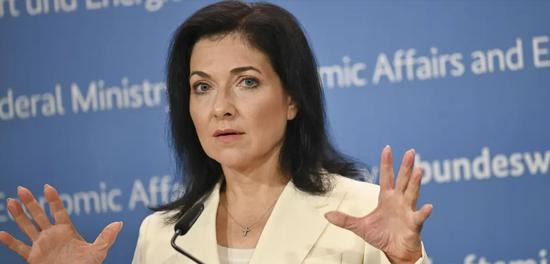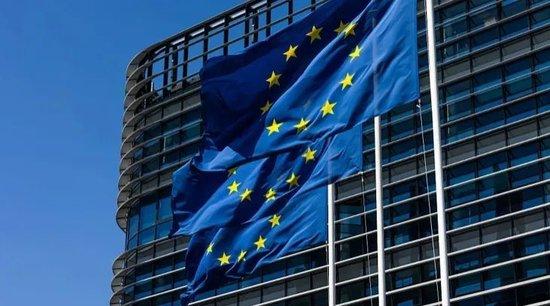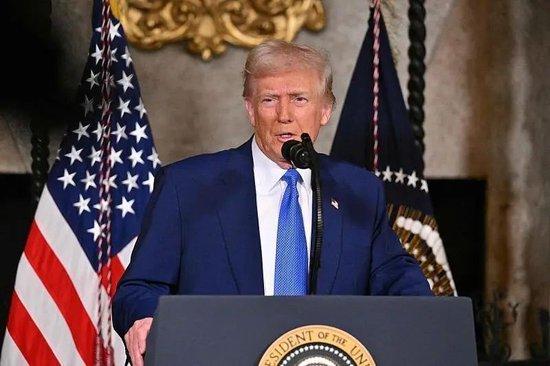



On the 12th, US President Donald Trump sent two letters of tariff threats, stating that starting from August 1st, a 30% tariff will be imposed on goods imported from the European Union and Mexico. The EU, the largest trading partner of the United States, immediately stated that retaliatory measures would be taken if necessary.
To date, Trump has issued tariff conditions to 24 countries and 27 EU member states. Analysts suggest that the trade turmoil triggered by these letters will ultimately force American consumers to bear the brunt.
Trump Unleashes Tariffs Again: Direct Attacks on the EU and Mexico
On July 12th, US President Donald Trump posted letters to Mexican President Andrés Manuel López Obrador and European Commission President Ursula von der Leyen on social media platform “Real Social,” announcing that starting from August 1, 2025, the US would impose a 30% tariff on products from Mexico and the EU.
△Trump’s letter to European Commission President Ursula von der Leyen
Trump claimed that Mexico failed to prevent the entry of substances like fentanyl into the US, and also did not do enough to assist in preventing illegal immigrants from entering the US; the EU’s tariffs and non-tariff trade barriers have led to a significant trade deficit with the US, and the relationship between the two sides is “far from mutually beneficial.”
The tone of the letter was largely consistent with those sent to other leaders in the past week, including warning against retaliatory actions against the tariff increase, encouraging companies to relocate to the US, and suggesting possible adjustments in the tariff rates if the other side actively cooperates. (Previous report: “Named” 14 countries, highest tariff rate up to 40%! Trump strikes again)
△US President Donald Trump (Photo)
EU Seeks Negotiations: Retaliatory Measures May Be Taken If Needed
■Von der Leyen: Retaliatory measures may be taken if necessary
European Commission President Ursula von der Leyen stated on the 12th that the EU had noticed a letter from US President Donald Trump, which outlined the revised tariff rates and new schedule.
The statement expressed that the imposition of a 30% tariff on EU exports would undermine vital supply chains across the Atlantic, harming the interests of businesses, consumers, and patients in both sides.
△ European Commission President Ursula von der Leyen issued a statement on the 12th.
The statement mentioned that globally, few economies can match the openness and adherence to fair trade rules of the EU. The EU is committed to resolving its differences with the United States through negotiations.
The statement also stated that the EU remains prepared to continue its efforts to reach an agreement before August 1st. At the same time, all necessary measures will be taken to safeguard the EU’s interests, including taking appropriate countermeasures when necessary. Meanwhile, the EU will continue to deepen global partnerships and firmly base its approach on the principles of rule-based international trade.
■ European Council: Support for a Fair Agreement
The President of the European Council, Josep Borrell, subsequently stated that free and fair trade promotes prosperity, creates job opportunities, and strengthens supply chains. Tariffs are taxes, they exacerbate inflation, create uncertainty, and hinder economic growth.
Borrell said that the EU will continue to establish strong trade partnerships worldwide, ready to protect its interests at any time. He emphasized that the European Council fully supports the EU Commission in reaching a fair agreement with the United States.
■ European Parliament: Retaliation Needed
The Chairman of the European Parliament’s Committee on International Trade, Guus Hirst, responded by saying that the US action was “outrageous” and called for immediate retaliatory measures from the EU. Hirst warned that the worst scenario has not yet arrived, and it is unclear how high these unreasonable tariffs will eventually rise. The EU should not continue to wait but instead should decisively use its economic influence to resolutely respond to the unfair trade practices of the US.
■ France: EU Should Defend European Interests
On the same day, French President Macron took to social media to strongly condemn the decision of the US government and stated that France “stands with the position of the President of the European Commission,” expressing “strong opposition” to this.
Macron mentioned that this decision was announced suddenly against the backdrop of weeks of intense negotiations between the European Commission and the US, presenting a “sincere and strong” proposal. France is deeply dissatisfied with the actions of the US. France will fully support the European Commission in advancing negotiations. If an agreement cannot be reached before August 1st, the EU should accelerate preparation for “credible countermeasures,” utilizing all available tools, including the “anti-coercion mechanism.”
△ French President Macron (Archive photo)
■ The Netherlands: Tariffs Are Not the Way to Solve the Problem
The Dutch Prime Minister of the Caretaker Government, Schoof, expressed concern over the announcement by the US of tariffs on goods from the EU, stating that this is not the correct way to solve the problem. He stated that the European Commission could fully rely on the support of the Netherlands. He called for the EU to remain united and resolute, striving for a mutually beneficial outcome with the US.
■ Germany: US Tariff Policy Will Weaken Competitiveness Between Europe and America
German Federal Minister for Economic Affairs, Ries, expressed hope for a “pragmatic negotiation result” despite the situation escalating again. In the remaining time, the EU must strive to reach a solution with the US on major, critical conflict points. Tariffs threatened by the US will not only harm European export businesses but also have “significant impacts on the economy and consumers across the Atlantic.”
△ German Federal Minister of Economic Affairs, Reichen (Photo)
■ Mexico: Unfair Treatment, Not Accepted, Negotiations Underway
On the same day, the Mexican Ministry of Foreign Affairs and Economy stated in a joint declaration that, given the United States’ announcement of a new tariff of 30% on Mexican products entering the US starting from August 1, the Mexican government considers this to be “unfair treatment.” The Mexican government has begun negotiations with the United States to protect border businesses and employment.
The statement mentioned that since July 11, a permanent bilateral working group was established by the Mexican delegation to address security, immigration, and economic issues with the United States. Presidente Michelle Chirinos expressed her belief that an agreement could be reached with the United States before August 1.
△ President Michelle Chirinos (Photo)
Tariffs Will Backfire, Paying for Americans
According to an Associated Press report citing former U.S. trade negotiator Wendy Carter, Trump’s recent actions “highlight his increasingly unpredictable, disjointed, and tough trade policies.” Carter said that it is difficult for American trading partners to know what will happen at their most unexpected moments.
The United States heavily relies on imported goods, and the imposition of tariffs will ultimately lead to an increase in living costs for Americans.
The United States had previously sent a letter to Brazil claiming a 50% tariff, which Brazil explicitly rejected, stating it would engage in tariff negotiations with the United States. If these negotiations fail, Brazil would take reciprocal measures, imposing a 50% tariff on Brazilian exports to the United States.
Approximately one-third of the coffee consumed in the United States comes from Brazil, and more than half of the orange juice sold in the U.S. market also originates from Brazil. Traders and experts have indicated that if the U.S. government insists on imposing a 50% tariff on all goods imported from Brazil starting from August 1, prices for food products such as coffee and orange juice produced in Brazil will significantly rise.
Moreover, on July 14, the United States will terminate the “Tomato Agreement” with Mexico, which will result in approximately 17% tariffs being imposed on tomatoes exported from Mexico to the United States.
According to data from the United States Department of Agriculture, in 2024, approximately 72% of the fresh tomatoes in the United States were imported, with about 90% coming from Mexico. One of the largest tomato distributors in the U.S., Natural Sweets, has informed its customers that if the agreement is terminated, it will have to raise prices by nearly 10%.
The last holdouts for tariffs will be the American people.